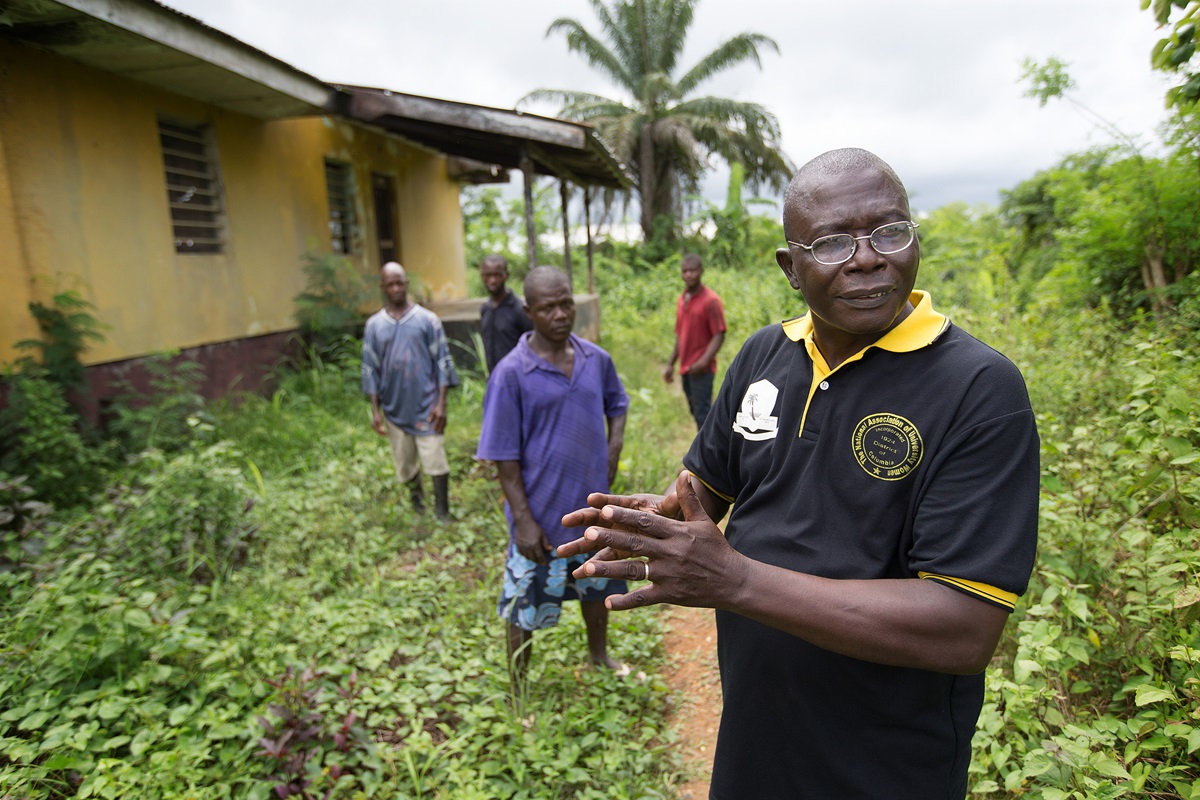Since taking office at the beginning of 2017, Bishop Samuel J. Quire Jr. has been getting a feel for the job as spiritual leader for Liberia’s United Methodists and crafting his vision for the church.
Quire was in a unique position as the administrative assistant to his predecessors, Bishop John G. Innis, who retired in 2016, and Bishop Arthur F. Kulah, who served as interim bishop until Quire’s election. Working so closely to the bishop’s office every day gave Quire insights into the job.
“As an assistant, you get to advise, but the bishop has to make the decisions, not you,” he said. “Now I’m sitting in the driver’s seat and sometimes it’s very challenging to do the right thing.”
He said he also learned that bishops have to pace themselves. “I can’t do everything in one year,” said Quire, who will serve a 12-year term as bishop.
One area that Quire placed immediate emphasis on is the need for the Liberian church to be more self-sufficient. He believes rural development is a key way to make that happen.
Quire has stated a need to find ways to supplement pastors’ salaries, specifically in the rural areas of the country, and he said increased agricultural production could help.
“I’d like to see a church that is vibrant, spiritually awake, evangelistically functional and self-sustaining, especially in the area of agriculture. When I travel in the interior and rural areas of our conference, I would like to see farms that are being operated by the church. We want to stimulate the need for us to go back to the soil.”
Though much of Liberia’s population farms, the country still imports half of its staple food requirements, according to USAID. Many farmers lack knowledge of the most beneficial farming techniques, such as crop rotation or water and soil management. Compounding the problem, only about 6 percent of Liberia’s roads are paved, and unpaved roads frequently wash out during the May-November rainy season. That limits farmers’ ability to transport produce to more valuable markets.
To address some of these issues, one of Quire’s first acts as bishop was to rebrand the Liberia Conference’s United Methodist Church Agriculture Program. Now called the United Methodist Rural and Agricultural Development Program, the initiative has an increased focus on outreach to farmers in the country’s most rural parts.
Learn more
 Palm oil runs from the hand-driven press at the United Methodist Ganta Mission Station, Liberia.
Palm oil runs from the hand-driven press at the United Methodist Ganta Mission Station, Liberia.
View photos from United Methodist News Service's trip to Liberia on our Flickr page.
Read story, 'Agriculture is life' for Liberian Methodists.
Watch video of the Rev. Joe Gatei who learned beekeeping to supplement his income through training from the United Methodist Committee on Relief.
The Rev. Joseph Theoway, program director, said there are two major components: Developing agriculture for commercial farming to generate income for the support of pastors and the conference, and outreach to congregations, districts and farmers through training in farming methodology.
Theoway was also director of the previous incarnation of the program but fled to Ghana in 1996 during Liberia’s civil war. He returned at Quire’s request.
“Our vision is that by 2029 we’ll have an agriculture program that will surpass pre-war levels, that will be instrumental in generating income and empowering the conference as a whole,” Theoway said.
Quire acknowledges the debt the Liberian church owes to longtime partners in the U.S. and other countries, and would like to see his conference share more of the load.
“For over 185 years as an annual conference we haven’t been sustainable. Now I’m saying to our partners, ‘Help us to help ourselves. You have given us fish for a very long time; come help us to fish so we can be good fishermen.’”
In addition to his agricultural focus, Quire sees other areas where the conference could move toward sustainability, such as developing housing for rent or engaging in microfinance. His wife, Richlain, is working with spouses of rural pastors to develop marketable skills like soap-making, tie-dying of clothes and weaving so they can help supplement their household income.
“We want to improve the lives of the rural people,” Quire said. “If you put an agriculture project there, you must have a school and a clinic and other facilities that will help the rural people.”
The rural development emphasis is the first phase of many that Quire hopes to roll out during his 12-year term. Many of his ideas stem from seeing ministry in new and concrete ways. He encourages churches to embrace their roles in identifying and addressing the needs of their communities.
“We shouldn’t be just content to have worship on Sunday and Bible study. If there’s no safe water, the church can take that on as a ministry. Parents who cannot afford to send kids to school, the church can help rescue those kids and send them to school.
“That’s evangelization, and you can’t just wait on Sunday mornings for people to come knock on the door of the church. We need to go after the people and bring them into the fold.”
Even as the episcopal leader for the area, Quire knows he cannot lead without a great deal of support.
“I’m just one person; I need a team of leaders,” he said. “In the church, we don’t have jobs to offer people, but we have ministries. Every position you hold, you’ve been called by God to do ministry.”
Butler is a multimedia producer/editor for United Methodist Communications. News media contact: Vicki Brown, Nashville, Tenn., (615) 742-5470 or newsdesk@umcom.org.
Like what you're reading? Support the ministry of UM News! Your support ensures the latest denominational news, dynamic stories and informative articles will continue to connect our global community. Make a tax-deductible donation at ResourceUMC.org/GiveUMCom.




